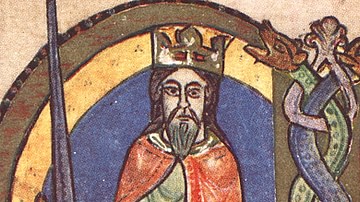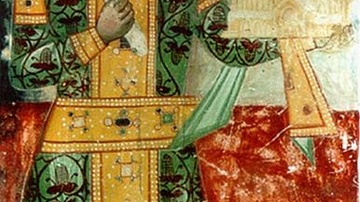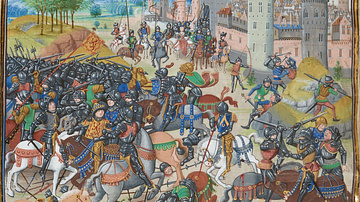Search
Remove Ads
Advertisement
Summary 
Loading AI-generated summary based on World History Encyclopedia articles ...
Search Results

Definition
King David
According to biblical tradition (and some say myth), David (c. 1035-970 BCE) was the second king in the ancient United Kingdom of Israel who helped establish the eternal throne of God. A former shepherd, David was renowned for his passion...

Definition
Four Noble Truths
The Four Noble Truths are the foundational tenets of Buddhism, which spark awareness of suffering as the nature of existence, its cause, and how to live without it. The truths are understood as the realization which led to the enlightenment...

Definition
David I of Scotland
David I of Scotland reigned from 1124 to 1153 CE. Taking over from his elder brother Alexander I of Scotland (r. 1107-1124 CE), David continued to consolidate the kingdom of Scotland as a single nation, built castles and monasteries, and...

Definition
David IV the Builder
David IV the Builder or the Restorer (also known as Davit IV Aghmashenebeli) was the king of Georgia from 1089 to 1125 CE. His long reign was marked by a substantial revival of medieval Georgia, he regained much of Georgia's lost territory...

Definition
Alexandra David-Néel
Alexandra David-Néel (l. 1868-1969) was a world traveler, writer, and Buddhist spiritualist who wrote over 30 books on her journeys which took her 18,641.136 miles (30,000 km) around the world on foot or by various conveyances. Her works...

Definition
David II of Scotland
David II of Scotland ruled as king from 1329 to 1371 CE. Succeeding his father Robert the Bruce (r. 1306-1329 CE) when still a child, his early reign was threatened by the pretender Edward Balliol (c. 1283-1364 CE), son of King John Balliol...

Article
The Ancient Concept of a Noble Death
The act of voluntary death was never condemned in antiquity. In fact, The English word "suicide" comes from the Latin for "self-slaying." The reason for a voluntary death had to be one that was honorable and necessary to remove any element...

Article
David & Goliath
As a youngster, David (the later king of Israel), slew Goliath, a giant, who was the champion of Israel’s enemy, the Philistines. "David and Goliath" became a metaphor for an underdog who nevertheless is victorious over a more powerful opponent...

Article
Ten Noble and Notorious Women of Ancient Greece
Women in ancient Greece, outside of Sparta, had almost no rights and no political or legal power. Even so, some women broke through the social and cultural restrictions to make their mark on history. All of the women did so at great personal...

Image
Grant Tank, Kasserine Pass
A photograph showing a US Grant tank at the Battle of Kasserine Pass in Tunisia, February 1943. The Allies lost this battle during the North Africa Campaign (1942-3).